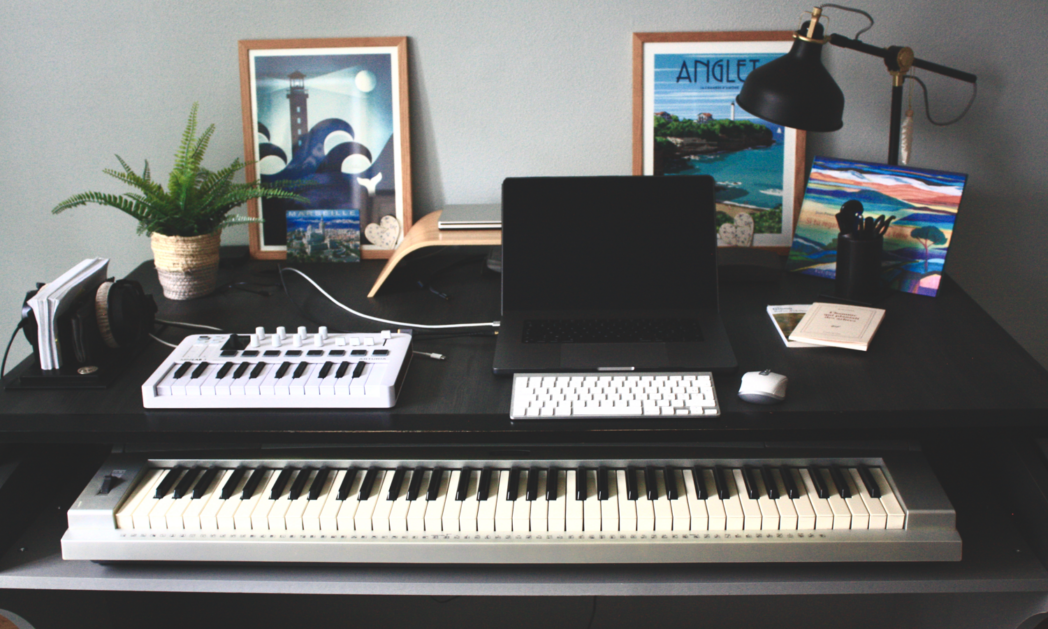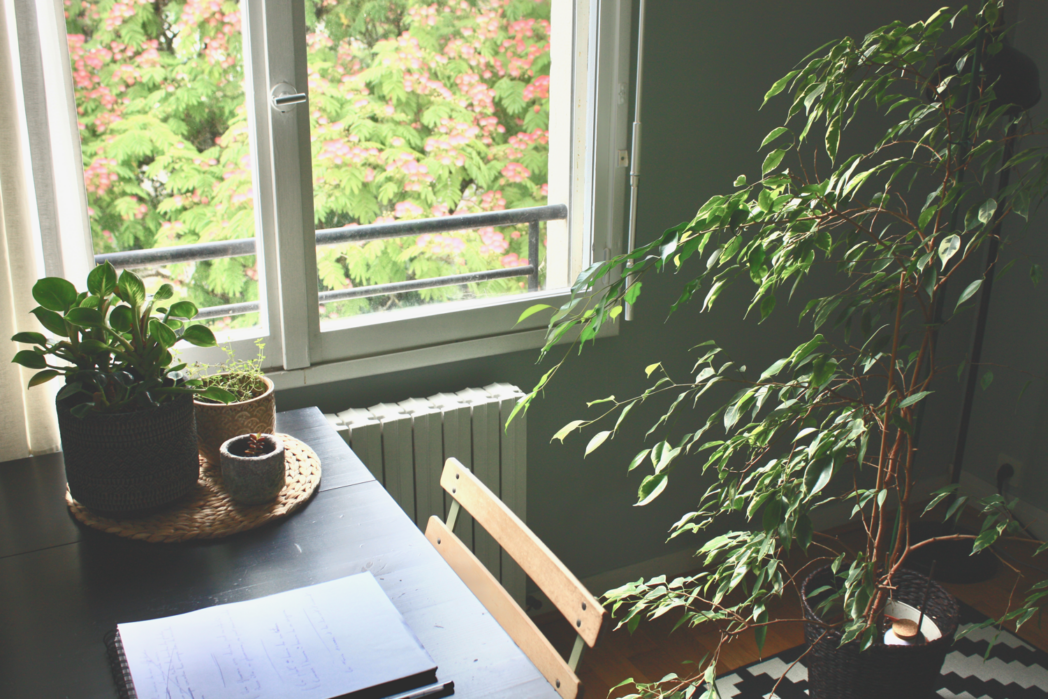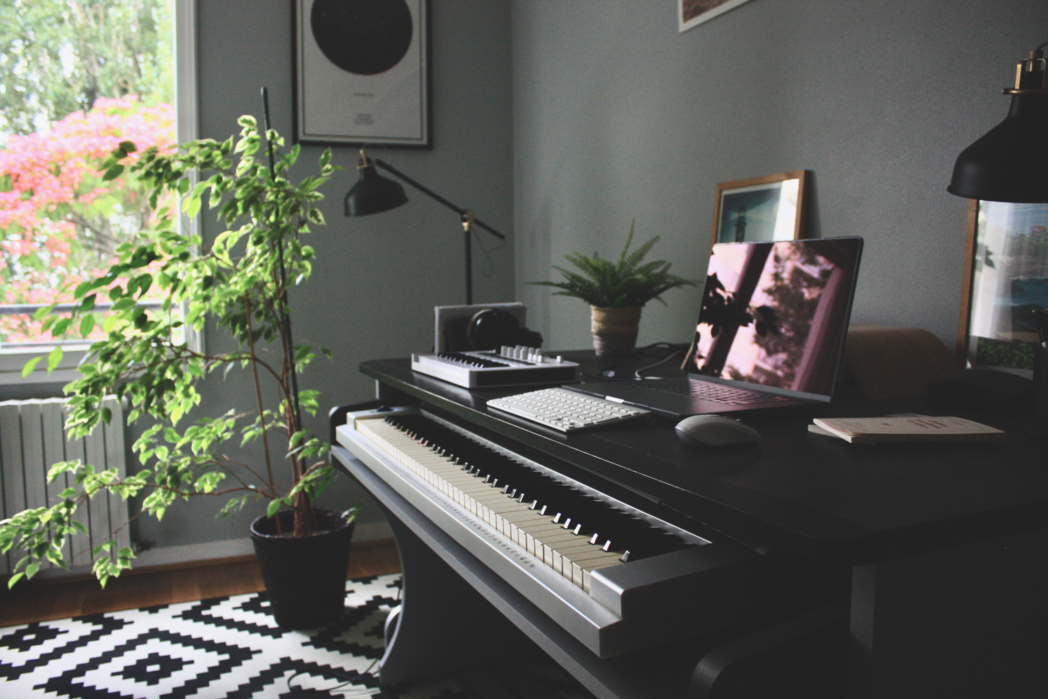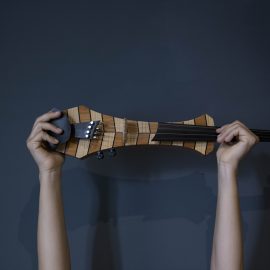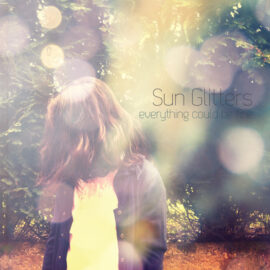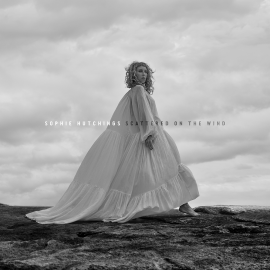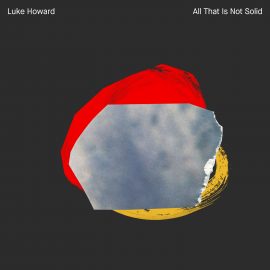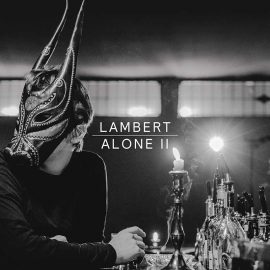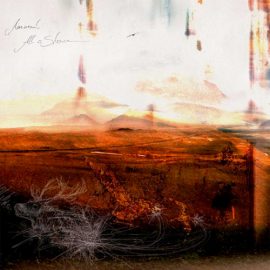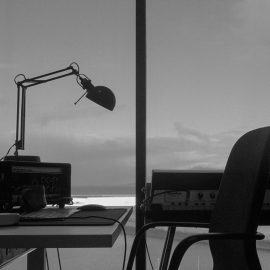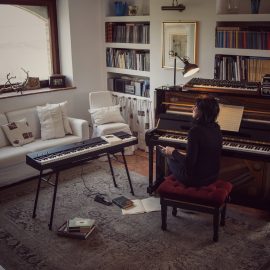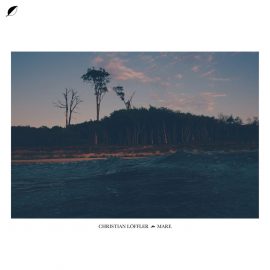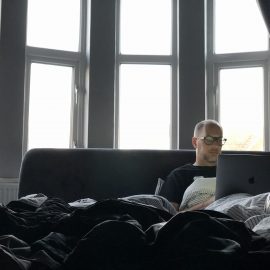Let’s start at the very beginning. Can you tell us how you got involved in composing, and what was your very first piece of gear?
Things are purely circumstantial in our life. Countless conditions and events have been necessary for me to express the music the way I do today. For instance, there was always music playing in the house when I was a baby. My parents used to play music from Vangelis, Pink Floyd, Abba, and many other artists, including classical, jazz, and soundtracks. In those early years, I had a little Casio keyboard with many sounds included. I had a lot of fun experimenting with melodies with it. My parents also bought a straight piano (with a very saloon bar sound!) that I had spent a lot of time creating melodies. The thing is, I always loved to play just for fun. I really loved inventing melodies. However, I remember one day, my first piano teacher playing a fantastic piece he had composed in front of me. He told me it was great to have fun creating music just like that, but I should practice and study more if I wanted to compose with more creativity and flexibility. Which is what I did. The following year, a software called Rave Ejay was released. It was enjoyable just to make techno music easily. That was the first time I played with a sequencer in my life. My brother and I had a lot of fun with that software. We were just fooling around with techno and acid samples. A few years passed, and I was starting to make music a bit more seriously. I started producing hardcore and breakcore stuff at that time. But I think it was around 2006 that some of my friends showed me more pro DAWs. This was when I started probably producing my first IDM tracks (with a very bad sounding quality!). Luckily, I had the chance to meet people on my way who taught me a lot of tricks on how to mix and produce more properly.
How many different studio iterations have you gone through, and what does your final setup look like right now?
Very little. My setup is very compact because I need to have things ready immediately. My studio desk is one of my most significant steps up. Since my album « Reversed,» I can simply turn on my keyboard, which is now directly in front of me and not on the side like it was in the past. Also, I needed a good pair of headphones for mixing because I have always been in apartments, and the isolation has always been a tough thing.
Tell us about your favorite piece of hardware.
I do not use hardware, but my keyboard is my favorite piece for now because everything comes from it. Any sound, melody, or expression comes from that unique keyboard I have owned in my home studio since 2006. The only thing that I need to do is press a key or two to start composing and let the inspiration flow (or not).
And what about the software that you use for production?
Very few. I try to stick with a specific set and not get carried away with too many plugins. For example, the Monark is a safe bet for basslines, whereas the Tal-J-8 is fantastic for pads, leads, and keys. I also like to use Reaktor Blocks to create drum loops. Limitations in any art are necessary to expand creativity and originality. I have seen some artists with a lot of devices (and/or software) and not really getting anywhere creatively. I feel it’s essential to use only what suits us the most. That’s why I prefer to have only the necessities and forge a specific sound palette rather than be completely lost with a ton of choices. This way, things come more naturally because I know what to use more instantly.
Is there a particular piece of gear that you’re just dying to get your hands on, and do you think one day you’ll have it?
Not really. I let my ears guide me and tell me what I really need at the moment of producing, not what I am chasing for.
Can you please share some aspects of sound design in your work?
My sound design is constantly evolving. I usually explore sound without a specific goal, mostly with my ears and my heart. I think it is more fun to play and experiment this way. Having said that, I now know which tool to use to expand my ideas in sound design. For instance, Reaktor Blocks is one of my favorite tools if I need to get a very modular and analog-sounding drum (that you can hear mostly in my album « Connections » or the recent sound pack for « Analog Horizon »). Then, I combine it with some slight saturation from Soundtoys plugins and a slight transient compressor for a more punchy result. As for my pads, I generally send the signal to one or two returns of delays and reverbs with different panning and presets to get a nice stereo image.
Any particular new techniques that you tried out for your new album?
Generally, each of my albums has a different sound and uses different techniques. This is because I have a different mindset when composing. My emotions, my tastes, and everything else have evolved since my last release, « Nouveau Départ,» and also the previous ones. « Breath,» my newest album, for instance, is a piece that combines a bunch of new effects and synths because I wanted it to be warmer, more precise, and most of all, grander. This has really suited me for what I had to express while composing. I have also been trying to add a new range of presets to my master bus, which has brought a kind of new sound compared to my previous works.
What does your live setup look like, and what do you bring with you when you travel for an extensive tour?
A laptop, a keyboard or two with some controllers. This is very compact and very simple. I need to get straight to the point, and as my music is primarily emotional and atmospheric, I want to play specifically the melodic parts and be completely free in the order in which I play the pieces. As in my studio, the keyboard is central to my live performances. Most of the time, I need to think hard about what’s the most important, and I really need to make some compromises when I switch from my studio to live performance.
What is the most important environmental aspect of your current workspace, and what would be a particular element that you would improve on?
Funny enough, I would mention everything in my home, not just my workspace. It includes the plants, the view, and even the kitchen, where I sometimes go to sit, read, and just meditate. I must even include the sunlight through the windows and the songbirds, which play an enormous part in my surroundings. I think it is very important to feel well in the place we create because we are what we feed ourselves with and what we are surrounded by.
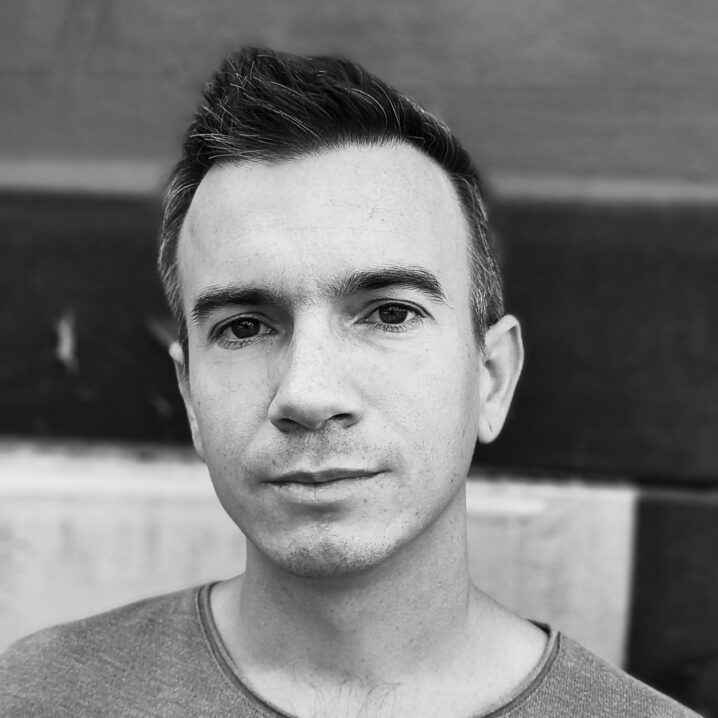
What can you tell us about your overall process of composition? How are the ideas born, where do they mature, and when do they finally see the light?
An important step for me regarding ideas is to not search for ideas. Having no goal is certainly the best way to express our emotions freely. To not expect anything and having fun in just playing music. In order to reach this state of mind, I need to take care of myself first. It means that I may just walk in the park, enjoy my footsteps on the ground, listen to birds, and breathe fresh air. It also means that I might go to the cinema, see friends, listen to some music, or just read to get my mind stuffed enough with good energy. In short, I take care of myself first in order to take care of other things with a peaceful mindset. I feed myself with good energy, and then I try to share my most sincere emotions. So this is when I feel the need to go into my studio, turn on my keyboard, load a template of mine in my DAW with all the plugins and presets set, and play for some hours. I believe that’s the best way to access our purest expressions because sooner or later, we will need to express them in one way or another. The main point again is to not be agitated but to let your mind go anywhere it wants until shivers arise or not.
After the piece is complete, how do you audition the results? What are your reactions to hearing your music in a different context, setting, or a sound system?
To make sure that a piece is complete, I let some days or even weeks pass until my ears are fresh enough to listen to it again. Sometimes, my reaction would be: « Why did I do this? » or « That’s really nice, but I should add or remove some elements .» I also need to listen in different sources like my HIFI sound system, another pair of headphones, or any other pair of speakers. So, I improve the mix and the arrangement of a piece with a clearer mind and, most of all, with no rush.
Do you ever procrastinate? If so, what do you usually find yourself doing during those times?
Absolutely not. I just cannot do something else if a demand or any other project strikes my interest. I feel the need to drop the ideas in the DAW as soon as possible.
What gets you inspired?
Everything. From my own experience in the past to my surroundings now (fortunate and unfortunate). It includes absolutely everything that belongs to this world. Any situation, question, scenery, or conversation that may arise from my inspiration are things that I analyze and feed myself with. This means that even psychological states are part of my inspiration. Life itself is an absolute miracle that overwhelms me daily and inspires me. This is the way I want to express my most sincere emotions: by embracing them. Each of my albums has been done this way, and my latest album, « Breath,» is a perfect example of this method.
And finally, what are your thoughts on the state of “electronic music” today?
It is a bit vague for me to tell you about « electronic music » only as I feel many genres of music nowadays are merging altogether. Overall, I see that technology is evolving alongside us and vice versa. I think as long as people compose with their hearts and not with their greed, electronic music (or anything else) will be okay. This, for me, applies to any decade and to any kind of artistic expression.
